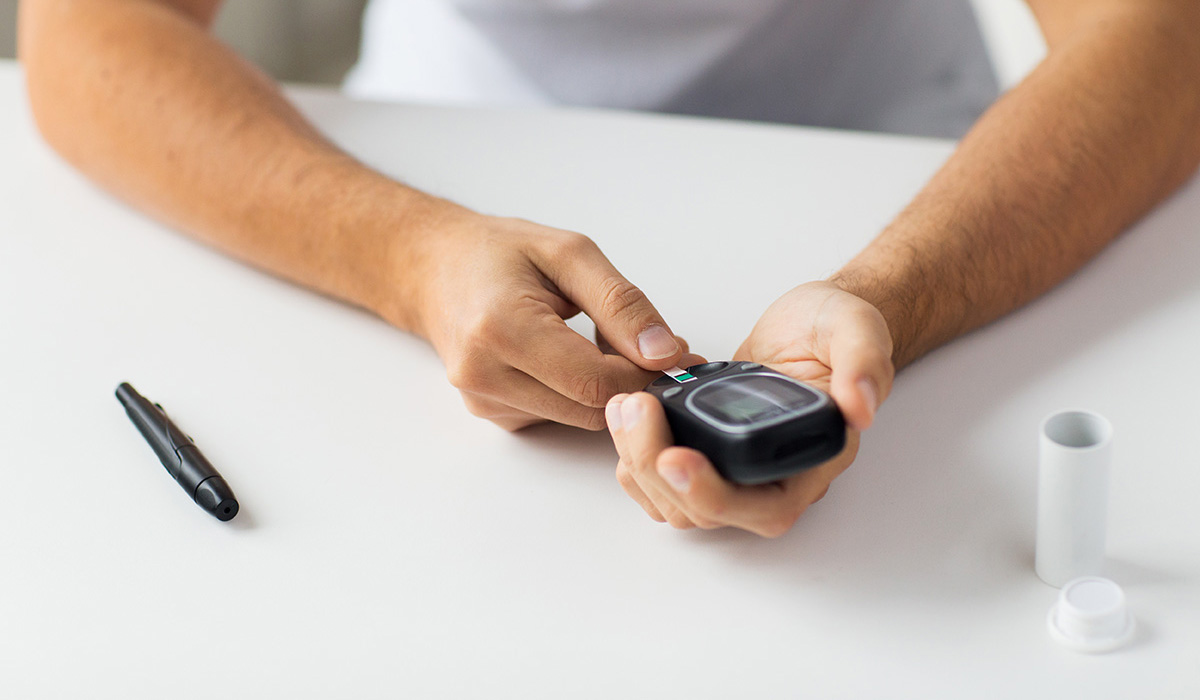September 2024
Most people think of diabetes as a problem with your blood sugar. But did you know that diabetes is also associated with a higher risk of heart disease? In fact, the CDC reports that people with diabetes are twice as likely to develop heart disease as those who aren’t diabetic. And the longer you have diabetes, the greater your risk of developing heart disease.
Learn more about what why diabetics are more at risk of cardiovascular disease — and what you can do about it!
Why Diabetics Are More at Risk for Heart Disease
It’s complicated to tease out exactly why people with diabetes are more at risk of heart disease. Part of that is because some of the risk factors for developing diabetes are the same risk factors for developing heart disease. For example, people are at increased risk of both heart disease and diabetes if they:
- Have a BMI of 30 or more.
- Don’t get enough physical activity.
- Eat an unhealthy diet. This includes eating a lot of refined grains, processed foods, added sugar, and saturated and/or trans fats.
Diabetes and high blood pressure often occur together. In fact, people with diabetes are twice as likely to have high blood pressure as those without diabetes. It is not clear if diabetes causes high blood pressure or if both are just part of a broader metabolic syndrome. Whatever the reason, high blood pressure is also a risk factor for heart disease.
Diabetes is known to directly impact the heart in other ways. For example, high blood sugar (if your diabetes is not well-controlled) can damage your blood vessels. High blood sugar can also cause nerve damage, including to the nerves that control the heart and blood vessels.
Diabetes can also negatively impact the level of various lipids in your blood. Specifically, diabetes can lead to lower “good” cholesterol, higher “bad” cholesterol, and higher triglycerides. All of these increase your risk of heart disease.
How Diabetics Can Lower Their Risk of Heart Disease
Fortunately, there are many steps you can take to lower your risk of developing heart disease, even if you have diabetes. You can:
Manage your blood sugar. By keeping your blood sugar under control, you reduce your risk of heart-related problems that are triggered by poorly controlled blood sugar. You also help reduce the risk of developing other complications of diabetes, like kidney disease and diabetic retinopathy. To best manage your blood sugar, work with your doctor to make sure you know how to keep your blood sugar within the desired range — and have your A1C measured regularly to confirm you’re managing your blood sugar well.
Know your numbers. In order to best manage your heart disease risk factors, you need to know what they are. Ask your healthcare provider to check your cholesterol and triglycerides (if you haven’t had them tested recently), and if they’re elevated, talk with your provider about how you can reduce them. Also, if you have high blood pressure, learn how to take your blood pressure reading at home and ask your healthcare provider what steps you can take to reduce it.
Manage your blood pressure. Sometimes lifestyle changes (like a healthier diet and regular exercise) can help bring your blood pressure down. Sometimes it’s necessary to take medication to manage your blood pressure. Even if you need to take medication, lifestyle changes can help support bringing your blood pressure down to the normal range.
Eat a heart-healthy and diabetes-friendly diet. This can help lower your blood pressure, protect your heart, and help manage your blood sugar. A few simple tips can go a long way: Be sure to eat ample fruits and vegetables. Focus on healthy fats and lower cholesterol foods. Avoid sugar-sweetened beverages. The American Heart Association recommends that you keep your daily sugar intake below 36 grams (150 calories) if you’re a man — and 25 grams (100 calories) if you’re a woman.
Get regular exercise. Exercise can help lower your blood pressure and strengthen your heart. It can also help you lose weight, improve insulin sensitivity, and lower your blood sugar. In fact, the American Diabetes Association reports that exercise can help lower your blood sugar for up to 24 hours after you work out! It doesn’t need to be really intense exercise to gain benefit. Just 150 minutes per week of moderate intensity exercise (like brisk walking, biking on flat terrain, or swimming) is enough.
Lose weight. Even a modest amount of weight loss — 5% to 10% of your body weight — can make a huge difference if you’re significantly overweight. According to the Obesity Action Coalition, even this modest amount of weight loss can help increase your good cholesterol, reduce your triglycerides, decrease your blood pressure, reduce your A1C (a marker of your blood sugar level), and improve insulin sensitivity.
Quit smoking. Smoking doesn’t just cause cancer and other lung diseases. Smokers are 30% to 40% more likely to develop diabetes (compared to those who don’t smoke). Smoking is also a major risk factor for developing heart disease — and smokers who have obesity, high cholesterol, or high blood pressure are even more at risk of developing heart disease.



